Joshua has published three guidebooks and written more than 100 travel stories about Vietnam for international newspapers. His conclusion is that there is no place that is not accessible. Every town, city and province has its own tourist value. "Highlighted destinations are popular for a reason, but popularity brings with it huge numbers of tourists, chaos and disruption to services," he shared with the US newspaper Insider .
For travelers who love tranquility, he says, it is fortunate that there are many viable alternatives to Vietnam's tourist hotspots.
1. Sapa
Sa Pa tourism has a long history. In the late 19th century, the French found the subtropical lowlands too hot to endure, so Sa Pa – now a six-hour bus ride from Hanoi – became a popular destination for Europeans.
In contrast to the wild villages surrounding Sa Pa, the town itself has been a long-standing construction site.
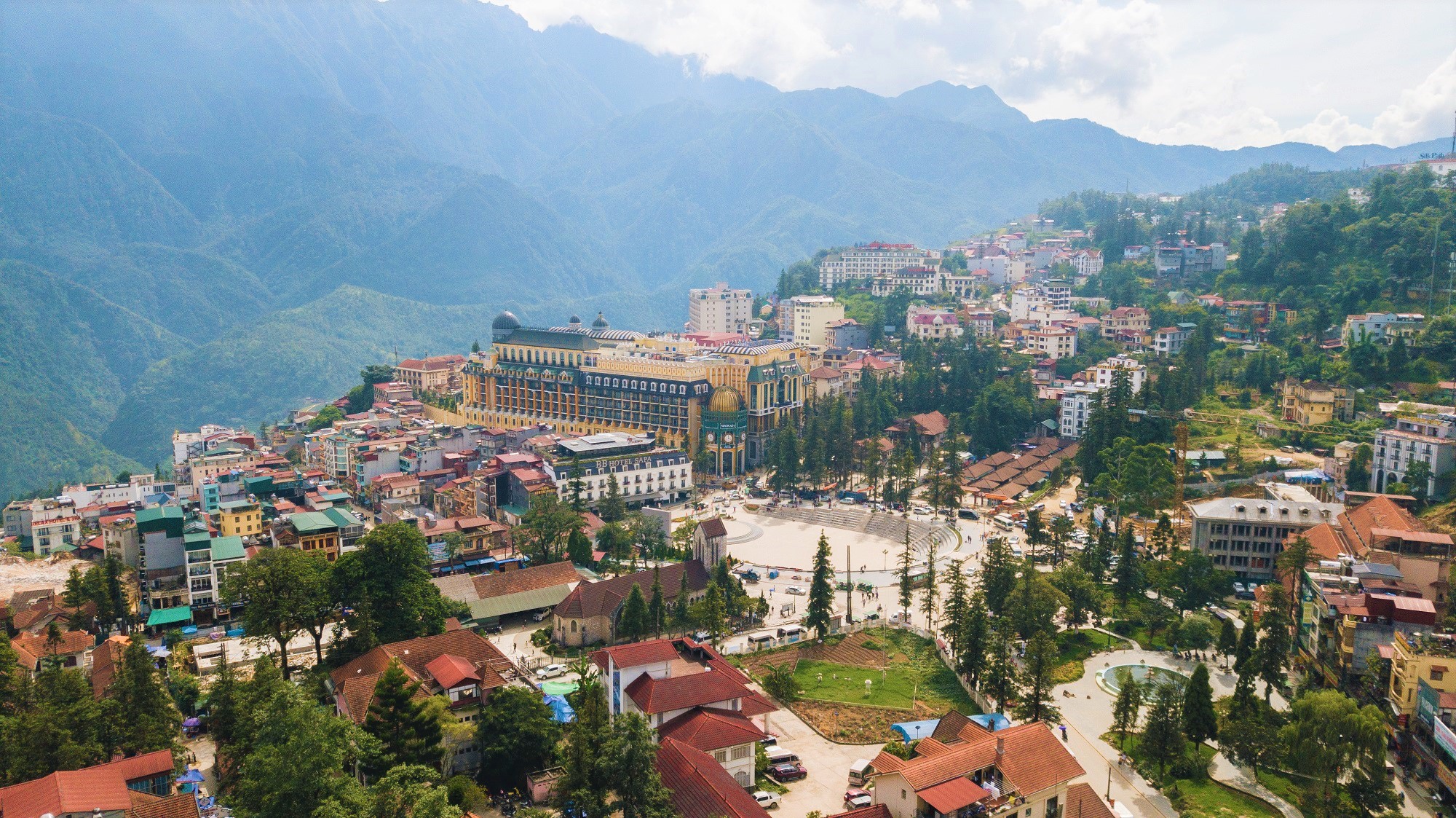
Sa Pa town center
You can skip the town center and head straight into the countryside by booking a multi-day trekking tour with Sa Pa-based companies. There are also more than a dozen alternative destinations hidden away in Vietnam’s vast northern mountains for visitors to explore .
Pu Luong Nature Reserve, for example, has some great mountain lodges; Mu Cang Chai is famous for its multi-tiered rice terraces; Ha Giang has some of Southeast Asia's best motorbike riding and Ba Be National Park has kayaking, caves and lakeside homestays...
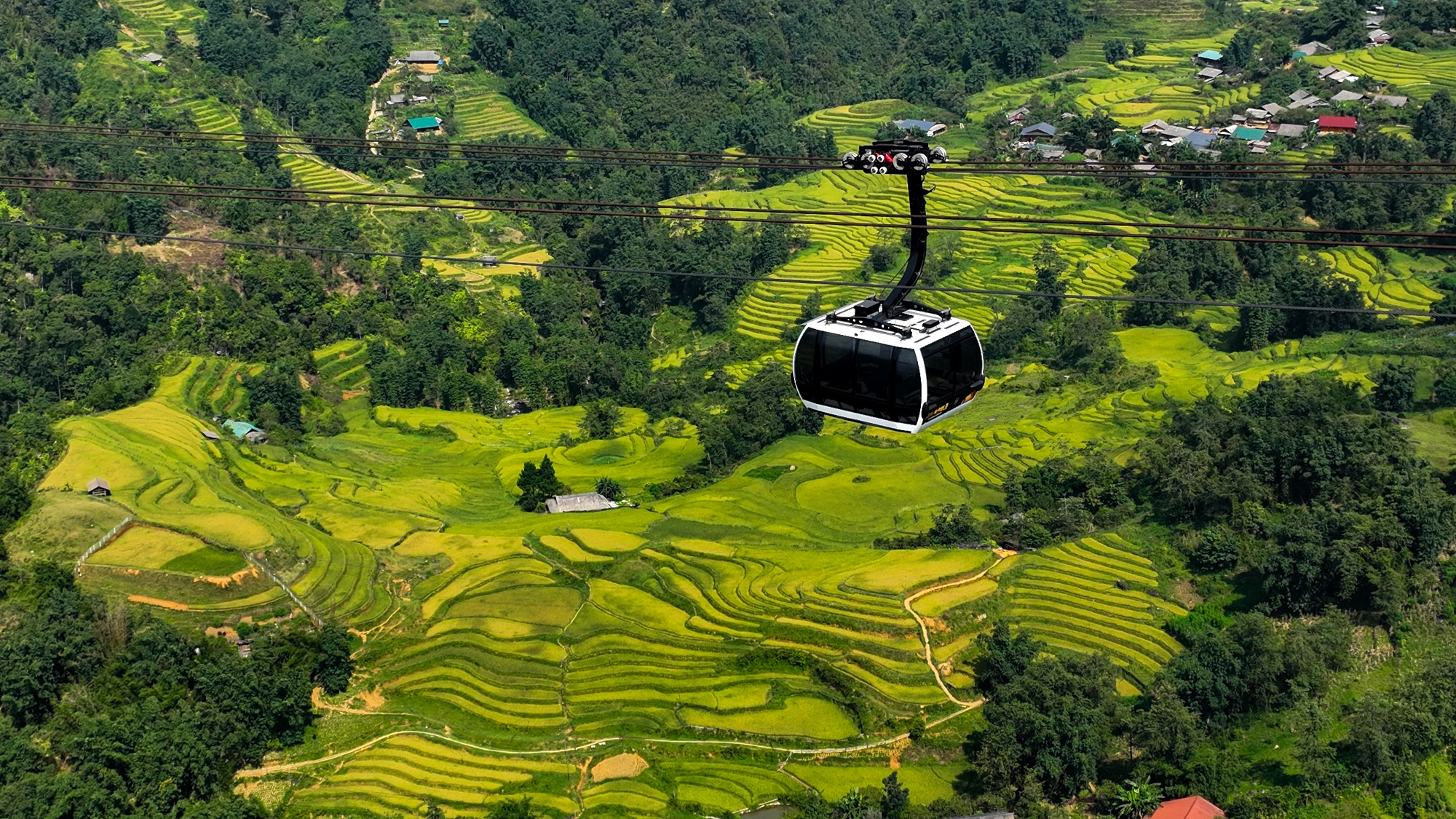
Fansipan cable car takes visitors through Muong Hoa valley with its four seasons changing colors.
2. Ha Long Bay
A three-hour bus ride from Hanoi, Quang Ninh Province is a major tourist draw. This hotspot has all the hallmarks of a heavyweight tourist destination: mythical stories, picturesque scenery, delicious local cuisine, and affordable cruises.
But at times, humans can overwhelm the bay, causing both UNESCO and IUCN, the International Union for Conservation of Nature, to express concern about visitor numbers. In 2016, 8.3 million tourists visited Quang Ninh; by 2019, a year before the Covid-19 pandemic, that number had risen to 14 million...
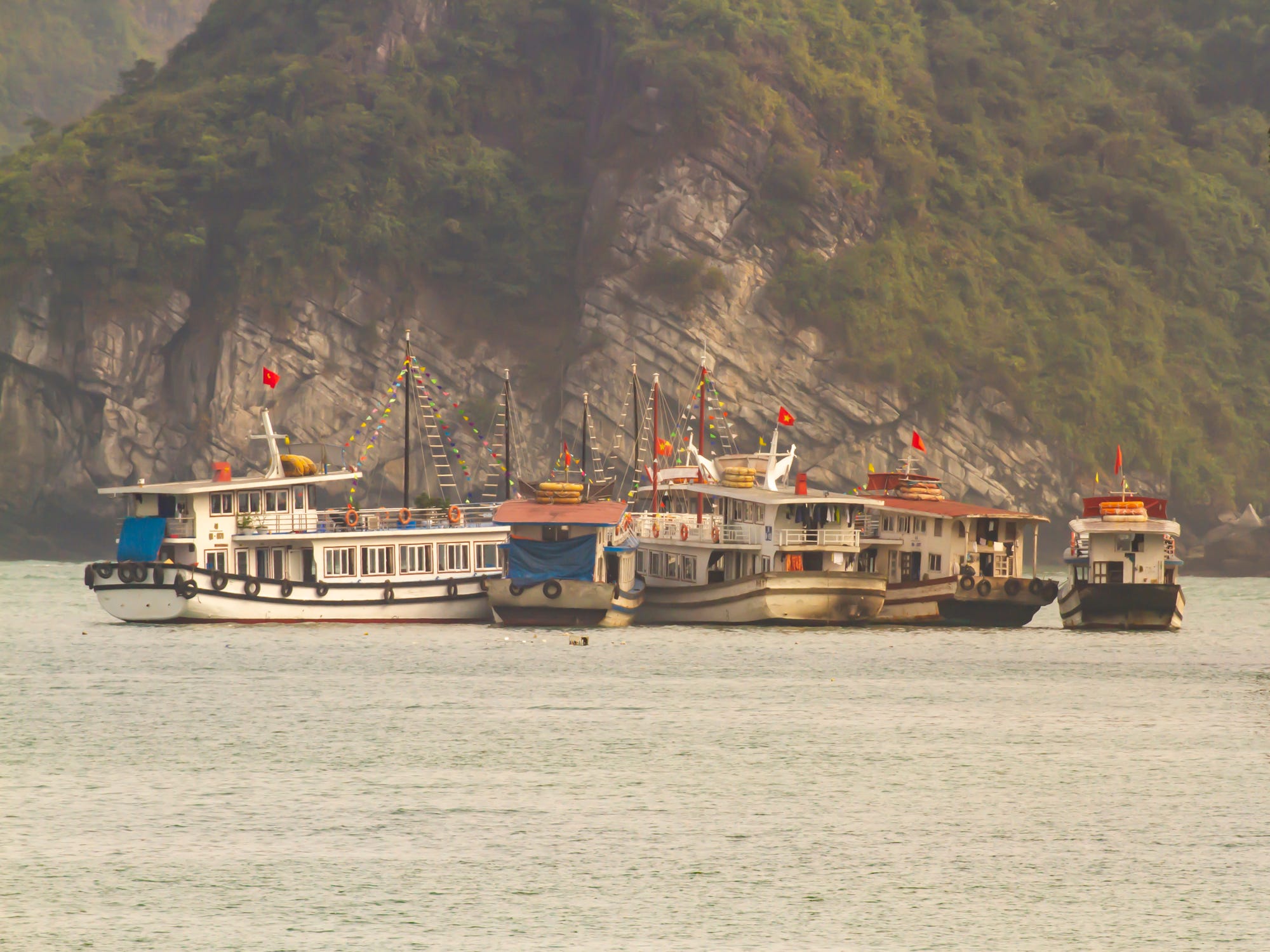
Ha Long Bay is a crowded place with boats picking up and dropping off tourists.
So where do tourists go instead? Lan Ha Bay and Cat Ba Island in Hai Phong City have similar scenery, but fewer cruise ships – and tourist-oriented activities have increased in recent years.
Cruises in Lan Ha Bay now rival those in Ha Long Bay, while Cat Ba Island combines water activities like kayaking and swimming with land-based activities like rock climbing and hiking.
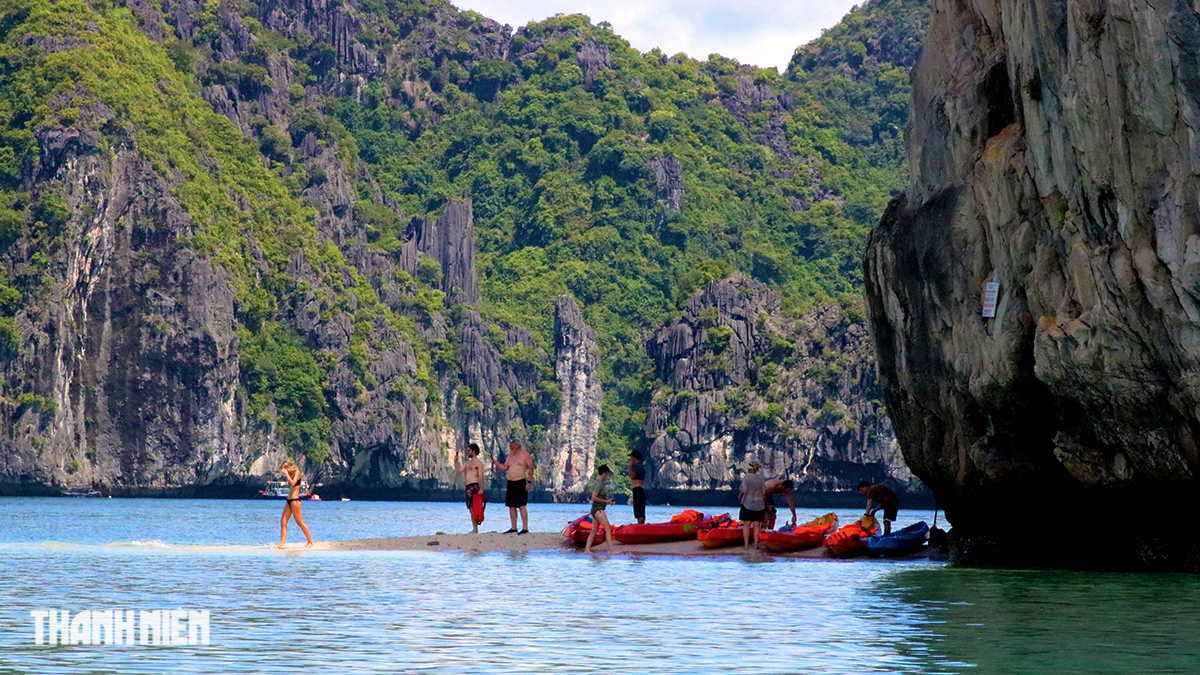
The clear, clean sea water on Lan Ha Bay makes foreign tourists excited when coming to Cat Ba.
3. Hoi An
A stroll through the lantern-filled old town of Hoi An, the quintessential Central Vietnamese tourist destination, may surprise you with its booming restaurants, well-preserved century-old architecture...
But local life has all but disappeared, tourism has taken over, and some questionable building policies have made it difficult to distinguish between authentic heritage buildings and recent replicas. Overcrowding has even prompted local authorities to propose a controversial entrance fee to the core of Hoi An’s old town.
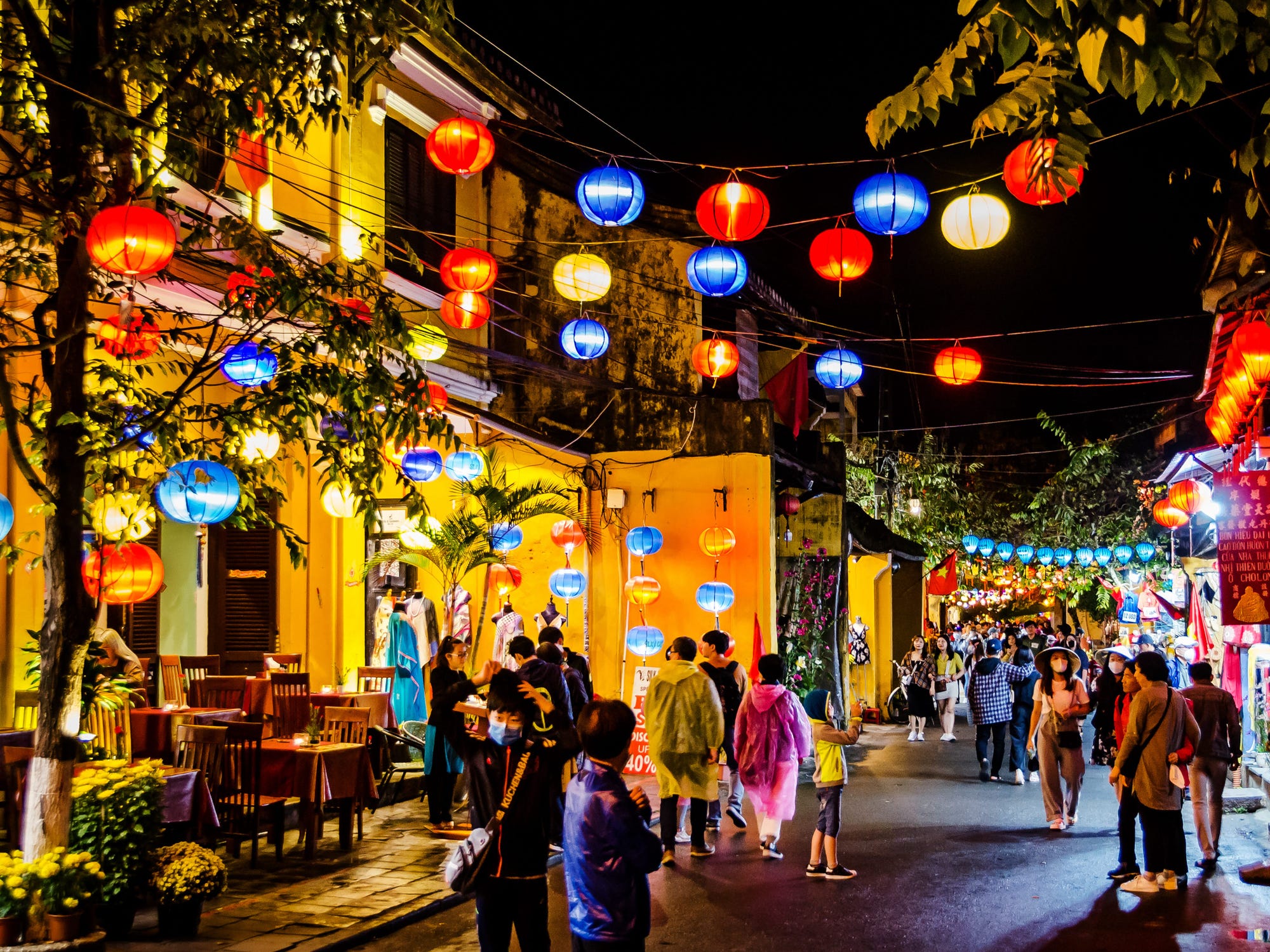
Night scene inside Hoi An ancient town
The ancient capital of Hue , another heritage city, about 100km north of Hoi An, is a viable alternative. Unlike Hoi An, where the sights are concentrated on a few streets, Hue's historic quarter is vast. North of the Perfume River are dotted with palaces, pagodas and temples... or explore neighborhoods that offer a glimpse into the lives of ordinary Vietnamese people.
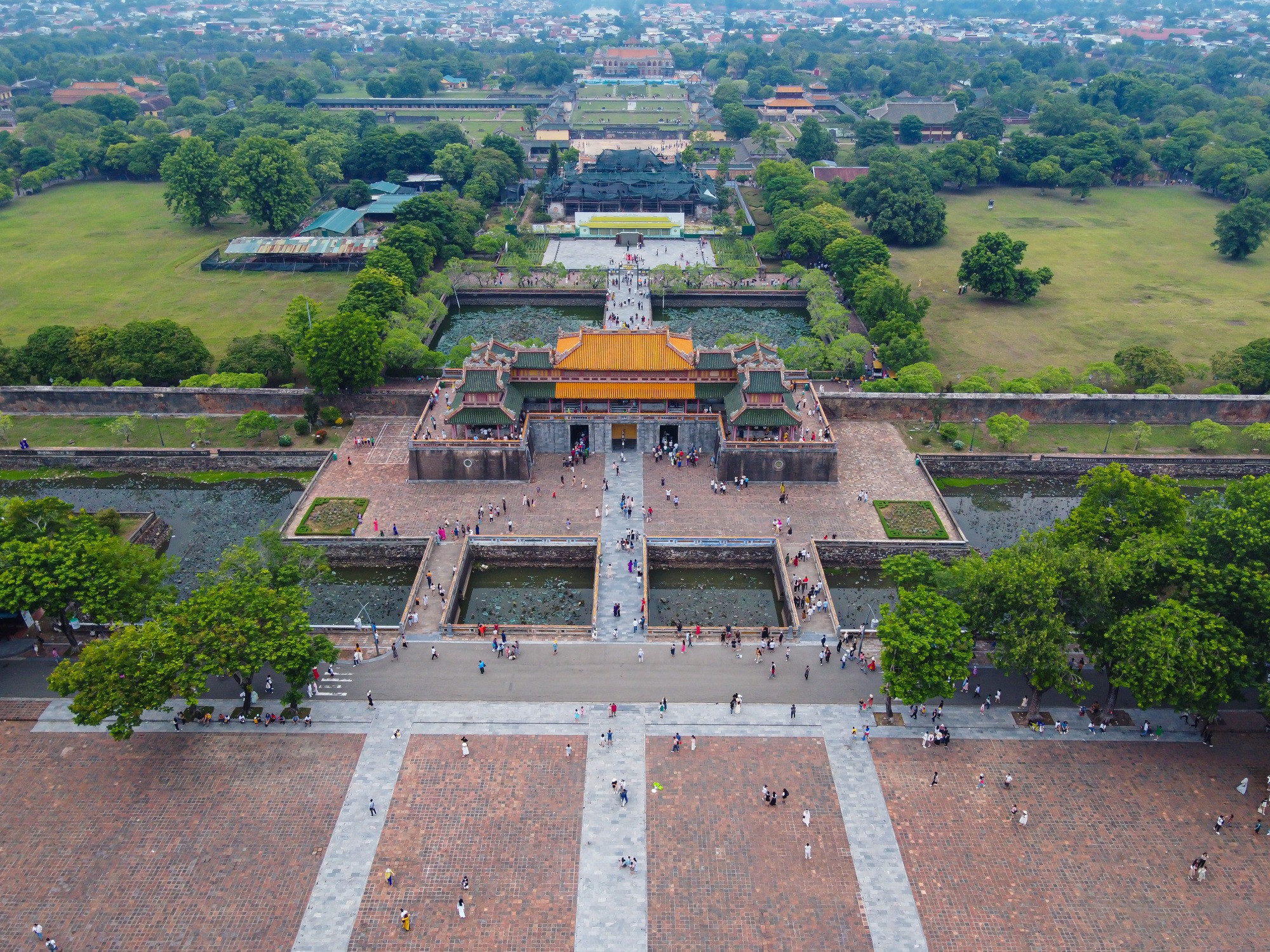
Hue Imperial City
4. Da Nang
As the largest city in central Vietnam with a population of more than 1 million, Da Nang has a wide sandy urban beach that rivals Miami, Rio de Janeiro and Barcelona. However, finding a quiet spot by the beach, especially during major holidays and the sunny summer months, can be a challenge.
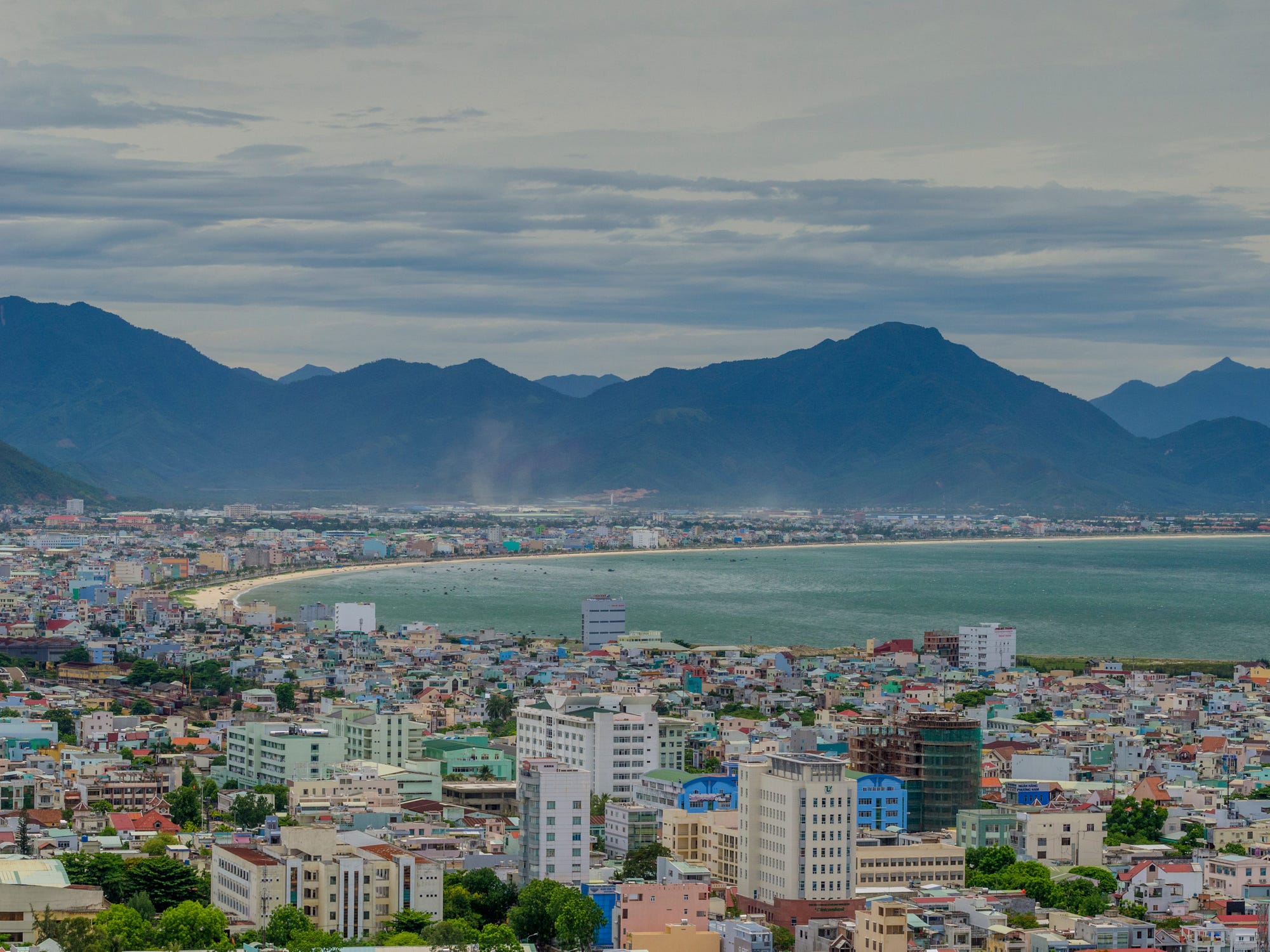
A corner of Da Nang city seen from above
Fortunately, the central region’s coastal geography has created a number of attractive urban beaches. South of Da Nang is Quy Nhon , a clean and quiet coastal city surrounded by centuries-old Cham towers and maze-like fishing villages. North of Da Nang is Dong Hoi, another peaceful coastal city and close to the unique caves of Phong Nha-Ke Bang National Park.
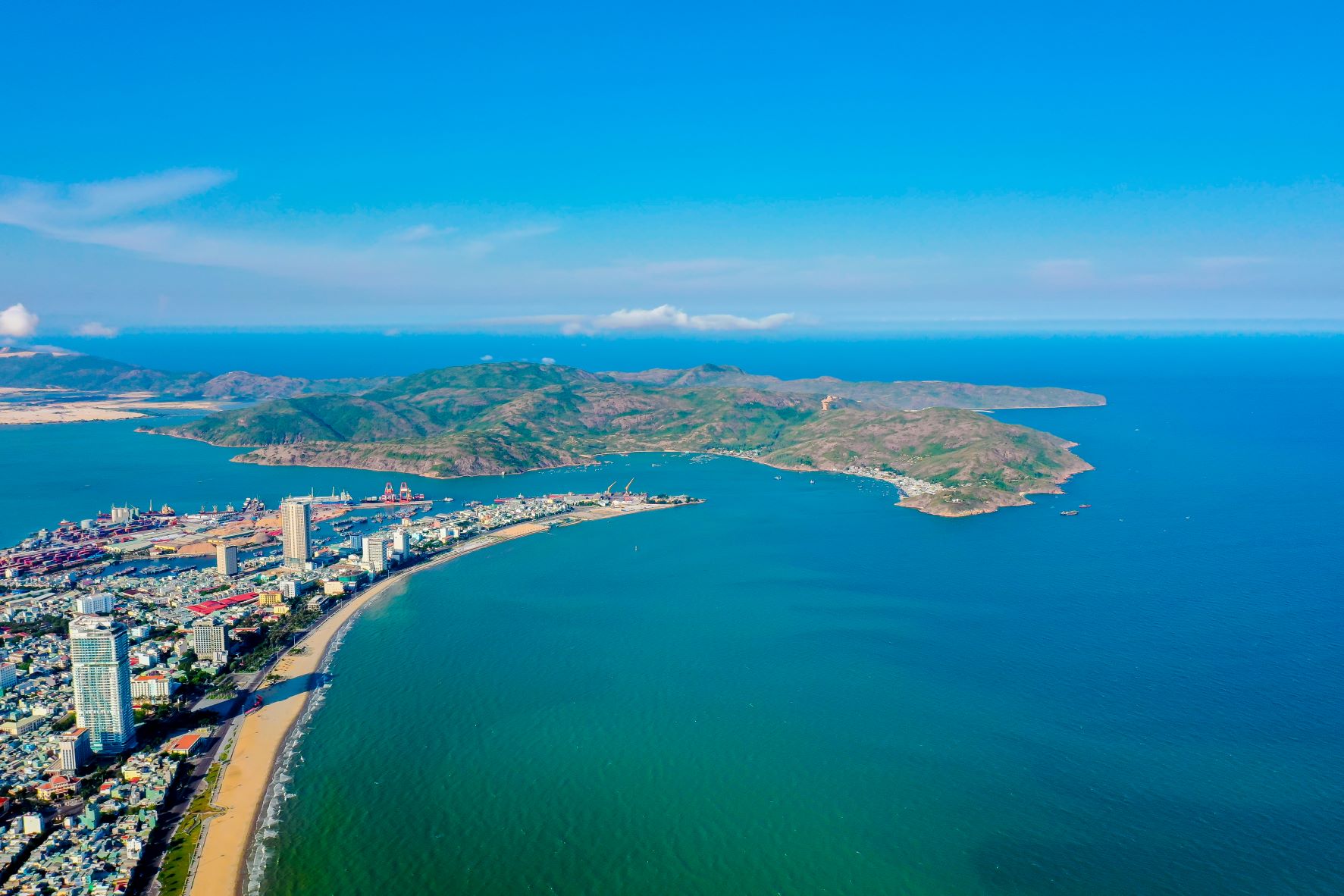
Quy Nhon beach town
5. Phu Quoc
Phu Quoc, an island in the South, has recently been dubbed the Maldives of Vietnam. The island has many luxury hotels, resorts, casinos and unfinished construction sites...
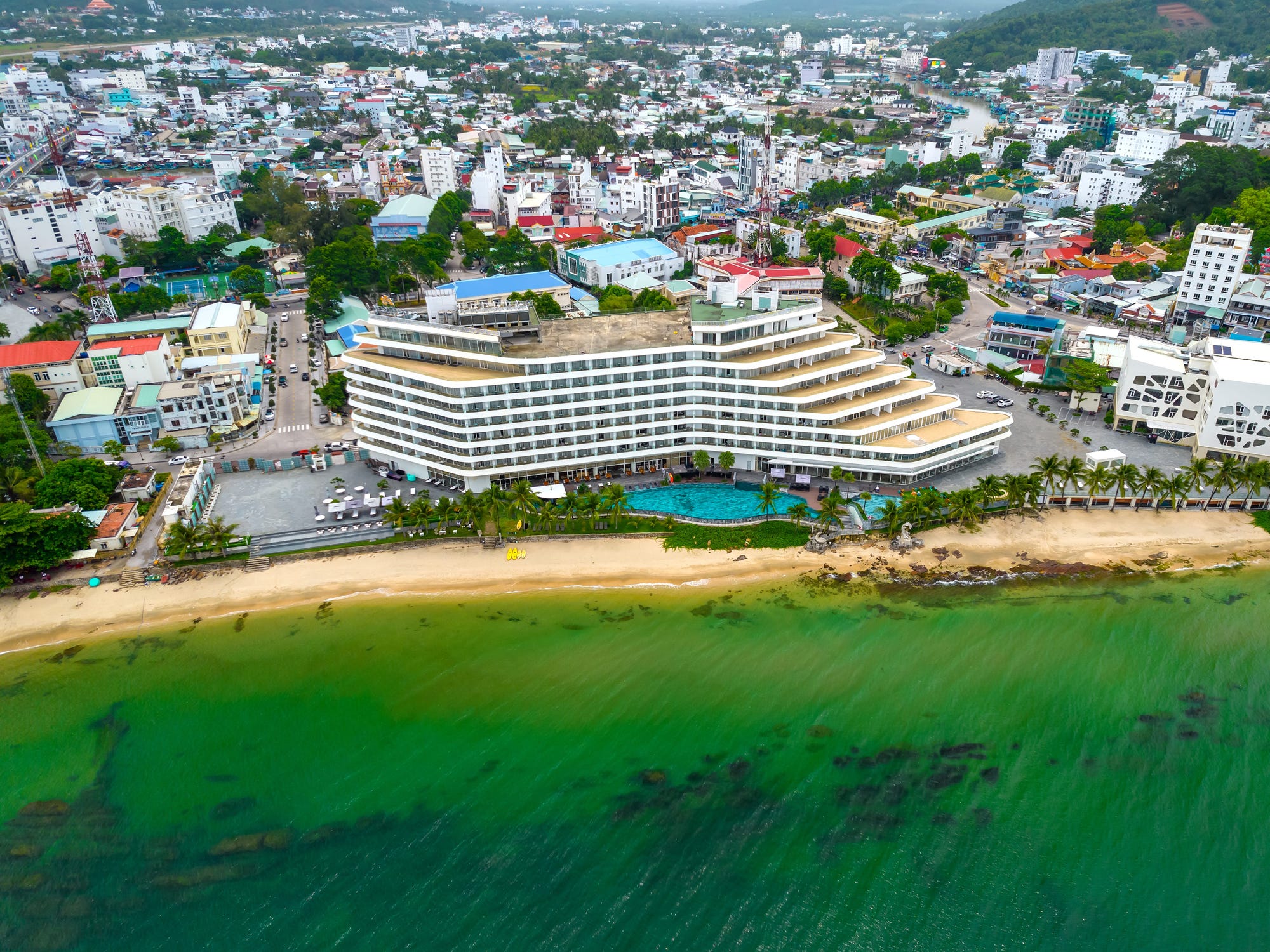
Beach in the center of Phu Quoc city
Meanwhile, Con Dao , also in the south, has fewer visitors. Con Dao seems to be learning from the mistakes of other destinations by limiting construction, managing tourist numbers, and enacting environmental protection policies. Limited hotel options and the island’s lack of easy access due to lack of transport have helped it retain its wildness…
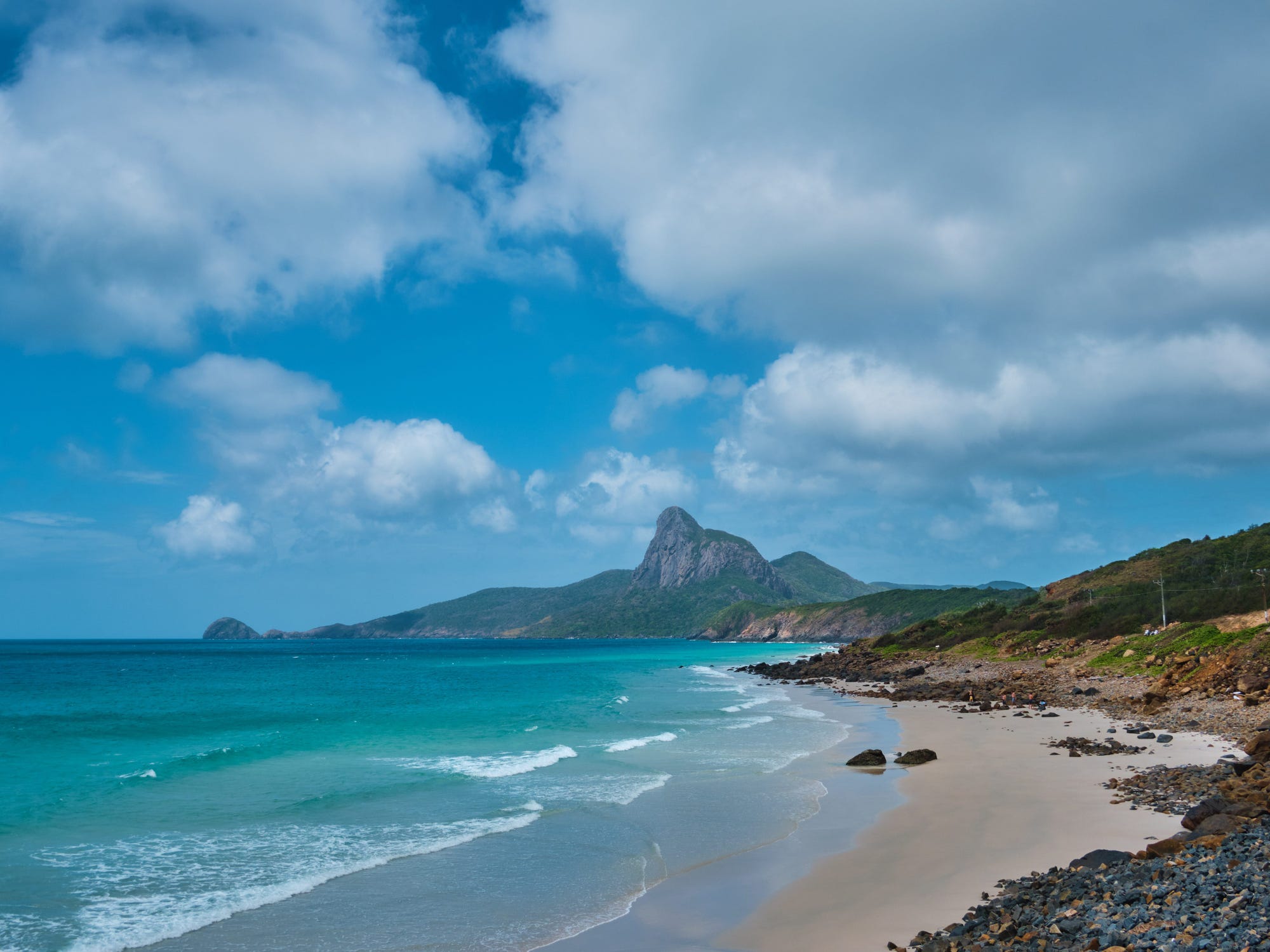
Con Dao coast is wild and quiet.
Source link





![[Photo] Binh Trieu 1 Bridge has been completed, raised by 1.1m, and will open to traffic at the end of November.](https://vphoto.vietnam.vn/thumb/1200x675/vietnam/resource/IMAGE/2025/10/2/a6549e2a3b5848a1ba76a1ded6141fae)






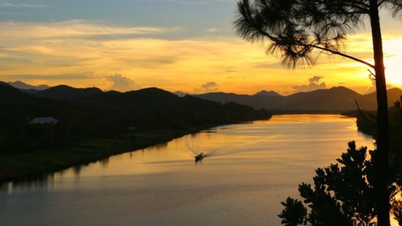

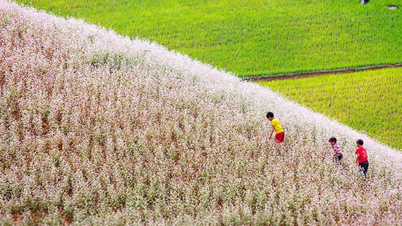

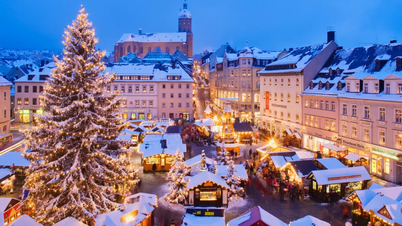























































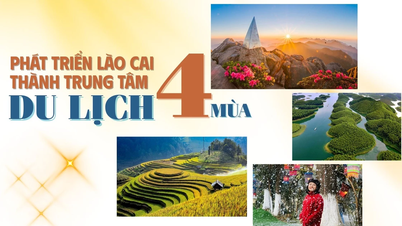



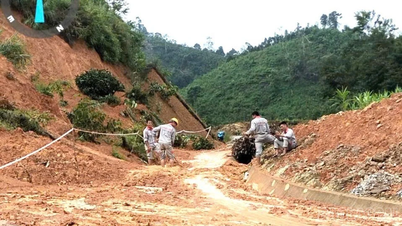
















Comment (0)